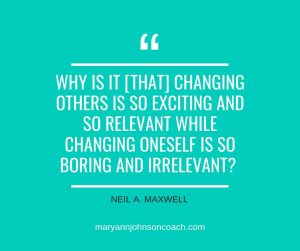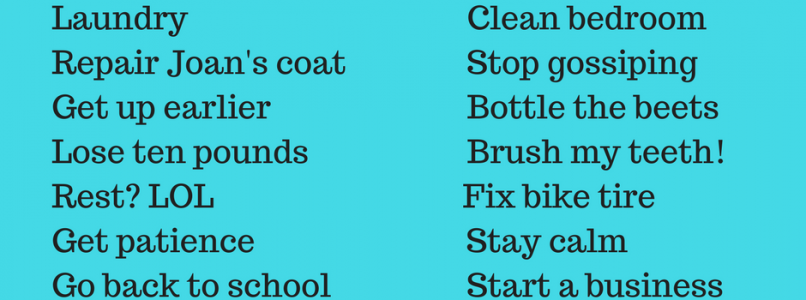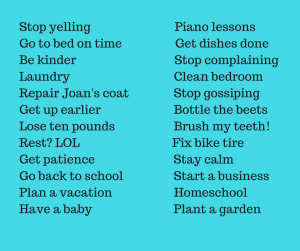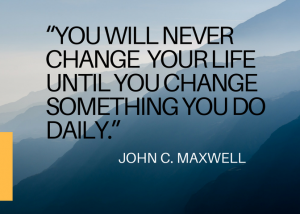 My friend Livia read a book about Neal A. Maxwell. In the book, they used the phrase ‘peaceful intensity’ to describe how he managed his busy life. It’s a way of being that can be cultivated. It involves how we perceive what is happening in the moment. Maxwell said you can be busy but still function from a place of peace. As Livia and I talked I wondered, “How can those two words even go together?” I was intrigued by the idea and this unique phrase.
My friend Livia read a book about Neal A. Maxwell. In the book, they used the phrase ‘peaceful intensity’ to describe how he managed his busy life. It’s a way of being that can be cultivated. It involves how we perceive what is happening in the moment. Maxwell said you can be busy but still function from a place of peace. As Livia and I talked I wondered, “How can those two words even go together?” I was intrigued by the idea and this unique phrase.
This is becuase I’ve been experiencing this place of busy peace in the last few years. It happens when I have this thought, STOP and TURN. In other words, shift how you see what is happening. When I listen and follow the thought I manage better. Even if the pace doesn’t slow down, my heart does. Imagine how life would be if this was our way of being most of the time.
This experience comes and goes in spurts, but it happens. It has felt as if I’m being taught from on high. As I have learned how it feels I can now consciously choose peaceful intensity. In the last year, I have experienced it more than ever before.
Most of you know I shower at night, not because I need to get clean but because it’s my quiet, ‘talk to God’ place. As I step into the shower on a day where nothing went as planned, but I STOPPED and TURNED, I have recognized a flow, a feeling of moving along without rapids in the river. I could honestly tell God I had done my best and felt satisfied that all that was needful had been done. These shower moments are precious because I go to sleep feeling peaceful despite the actual makeup of the day.
Let me share how it felt just two years ago. I sensed that around 3 pm my day shredded apart. I lost the sense of flow and struggled to stay centered. During my shower time, I felt distracted, disorganized, and dissatisfied. I remember watching the clock, racing it to that 3 pm moment while feeling a sense of panic. During my shower, I would plead with God to be shown how to get control. Funny how God answers prayers.
It isn’t about control, lack of distractions, or getting things ticked off the list. It’s about remaining calm with what is, in other words, peaceful intensity.
Do you know that while writing this I realized I haven’t looked at the clock during the day for some time? I haven’t thought about that 3 pm moment. Why? Has any physical thing changed? No, it hasn’t. Caregiving is filled with interruptions, added tasks, irritations, etc. It’s part of the calling. Doctor appointments haven’t gone away. Managing a home and helping with my granddaughter remains. Dementia is still in my life 24/7. All that changed is that I have worked to let go of the 3 p.m. story and have begun experiencing something new in my heart, peaceful intensity. I know it was an answer to my prayer about control. : ) I’ve been shown that control won’t solve the dilemma of overly busy days. However, how we approach those days, can.
TWO EXAMPLES OF PEACEFUL INTENSITY
I work diligently to write during the week. I want the article uploaded, edited, and formatted before Saturday. I need the podcast recorded. I want the newsletter to be ready to go. I want Saturday to be free. By free I don’t mean ‘no work or interruptions’, that never happens, but at least no writing deadlines. : )
However, one week in November I left it all until Sat. I began writing at 10 and didn’t finish until 4 because writing takes time and there were the usual interruptions. As I finished, I sat in awe and couldn’t believe how peaceful I felt and how smoothly it had gone despite all I had to manage along with the writing. This is what I have been experiencing more and more often.
Let me share what happened today. It’s January 4, 2025. I was able to have a few days away from home. My goal was to do lots of writing and move into the new year ahead. However, Don had surgery the day after Christmas and my mom had been ill and in great pain for over half the month. I felt I couldn’t go even though I would only be a mile from home. However, my daughter wouldn’t let me change plans.
Every day, from Monday through Thursday, I drove home to make sure all was well. I also had Don’s incision to care for. Tuesday was New Year’s so I spent most of the day and all that night at home. Wednesday, Mom was still ill and Don’s incision needed attending, so I was home for a few hours. That cut into my writing time. On Thursday Don was better and his incision looked great. Mom was up and dressed, crocheting for the first time in two weeks.
Friday, I didn’t go home. I wrote all day and made great progress. I did the same today until around 3 pm. I had enough posts to last a couple of weeks. I was happy and relieved. I planned to write a few articles during the remainder of the day.
Then out of nowhere, I got scammed. I was posting on one of my business pages and received a notification my site was being suspended. You know the rest of the story. They changed my password, and all three sites went down as if they never existed. I couldn’t access our church site which I post on for my calling. I can’t even open a new account.
I spent an hour trying everything that Facebook said to do. Nothing worked. I called my daughter, and she didn’t know what to do. So there I was, two days of writing and no way to use it. I had a moment where I thought I would go home because what was the use? The whole getaway had been a waste. I felt completely discouraged.
Then I had that feeling, STOP and TURN. I went back to my computer and began this article. I felt at peace. We would work it out or not and I could still write for you. All was not lost. That sense of peace moved in and the sense of desperation and hurry that the situation had stirred up, left. As I have written this I’ve been enveloped in peaceful intensity. The trouble isn’t gone. I don’t know what it will take to repair it if it can be repaired. But I’m OK. I went on to write two more articles.
These are two examples of real-life peaceful intensity. In both situations, I had to allow peace to enter my crazy day intentionally.
I’m a novice in this process, so why am I even writing about it? I hope to encourage you to think about practicing peaceful intensity, regardless of what’s happening. I can only share what I have learned so far. I know there’s more, and I will be taught. Then, I will share more.
WHAT I HAVE DONE
- I became aware that there was a new way I could think.
- I prayed for guidance and help. It’s always wise to ask someone who knows more than you. : )
- I continue to be aware of my stories and control them. I am pretty good at this part. I’ve been practicing for a decade and a half.
- I intentionally decided to incorporate peaceful intensity into my way of being.
- I am practicing, practicing, practicing.
- Finally, I don’t berate myself on those days when I don’t do well. It is counterproductive.
I haven’t read A Disciple’s Life: The Biography of Neal A. Maxwell by Bruce C. Hafen. I may never get to it. But God can and is teaching me about rest and rejuvenation, as it relates to peaceful intensity.





 Change can be hard. One reason that change is so challenging is that we misunderstand what change actually looks like and we also misunderstand the time that is required for change.
Change can be hard. One reason that change is so challenging is that we misunderstand what change actually looks like and we also misunderstand the time that is required for change.



 God must have wanted to see how serious I was about the question because I prayed that same prayer every day for three months! Then one night I knew the answer – stop complaining!
God must have wanted to see how serious I was about the question because I prayed that same prayer every day for three months! Then one night I knew the answer – stop complaining! made a serious decision to become a more charitable person, less judgmental. That has been a work in progress too. Here is how they’re connected.
made a serious decision to become a more charitable person, less judgmental. That has been a work in progress too. Here is how they’re connected.
 Choosing one ‘best’ thing to work on right now makes ALL the difference in how much success you will have in making changes in your life.
Choosing one ‘best’ thing to work on right now makes ALL the difference in how much success you will have in making changes in your life.

 100% Devil
100% Devil 1% Principle
1% Principle
 Merry Christmas and Happy New Year!
Merry Christmas and Happy New Year! • Understand that the first step in change is awareness. When you mess up and then recognize the mess up, rejoice. You are in the first step. Don’t stress about how long you stay on step one. Don’t quit!
• Understand that the first step in change is awareness. When you mess up and then recognize the mess up, rejoice. You are in the first step. Don’t stress about how long you stay on step one. Don’t quit!